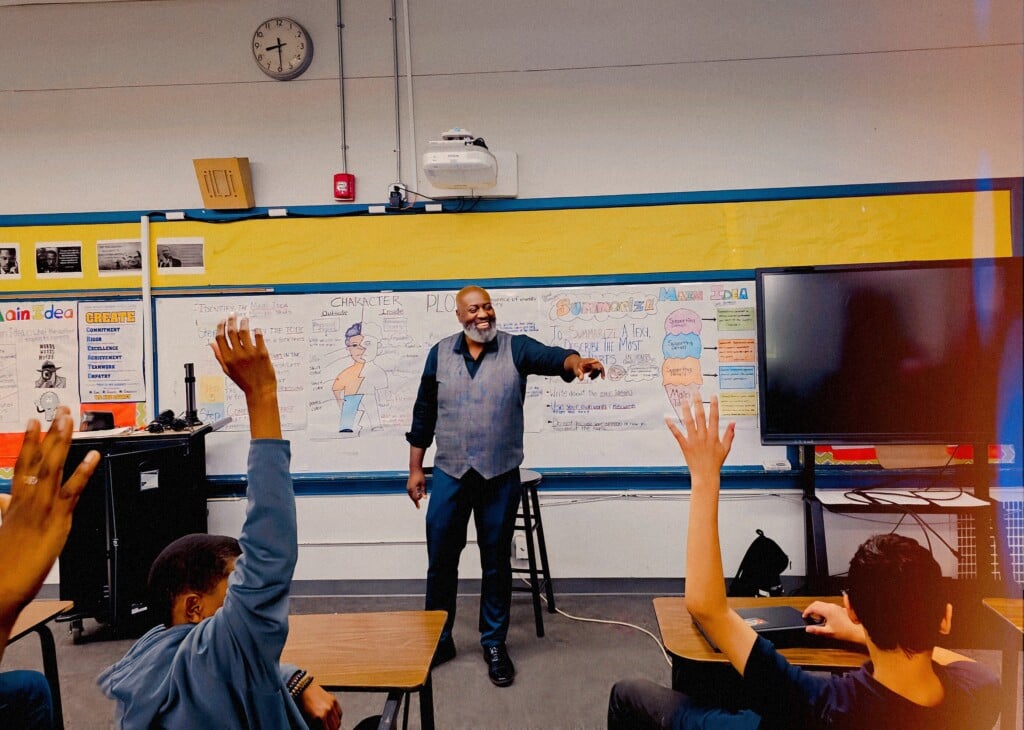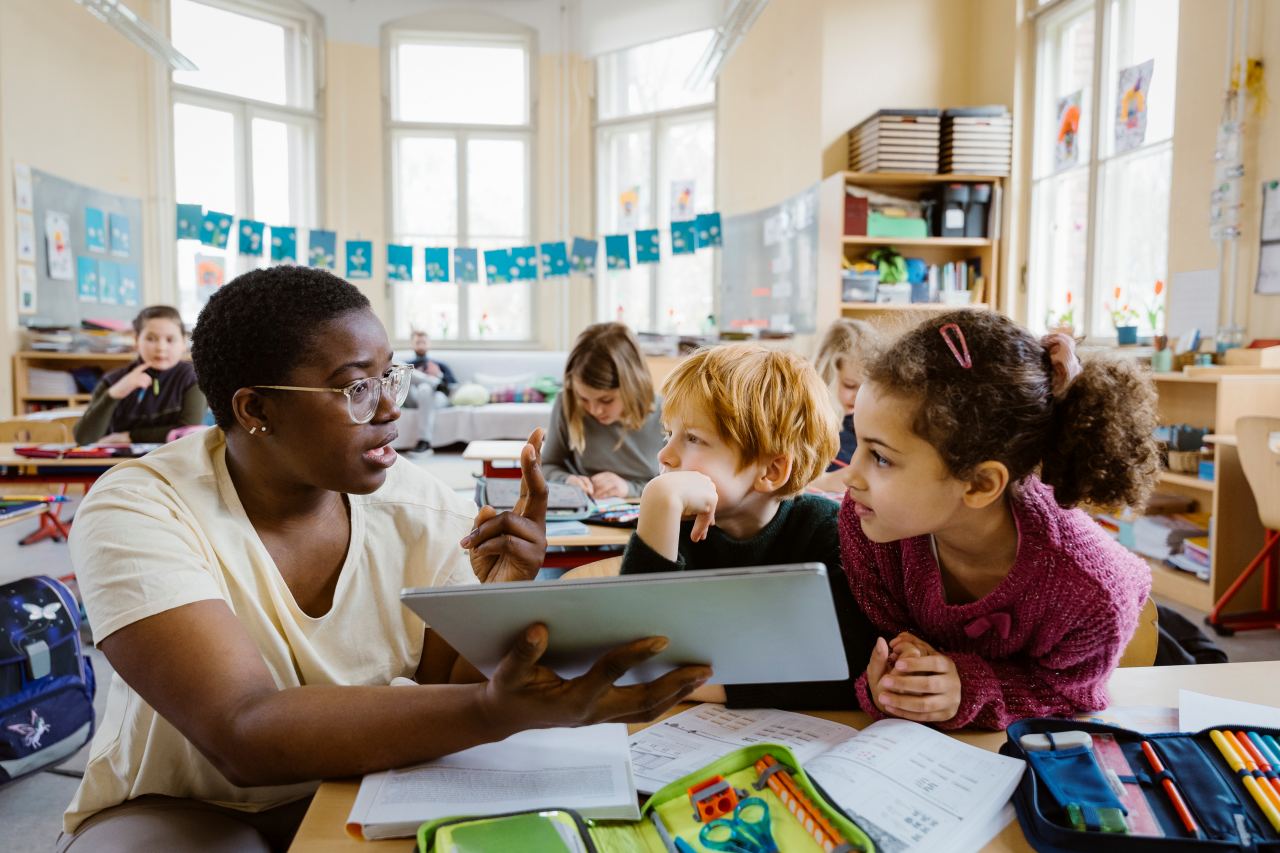Achieve Academic Success with Primary Science Tuition Singapore
Exploring the Different Training Approaches in Primary Scientific Research Education And Learning Today
The landscape of main scientific research education is developing, with different training approaches getting importance in contemporary classrooms. Inquiry-based discovering, hands-on experiments, and the assimilation of technology are redefining just how teachers involve young minds. Furthermore, joint techniques and set apart direction are being used to deal with the diverse requirements of pupils, boosting both engagement and understanding. As we analyze these methodologies, concerns develop concerning their performance and the effects for future educational methods. What might these changes in technique mean for the following generation of students?
Inquiry-Based Discovering
Inquiry-Based Knowing (IBL) is a pedagogical technique that motivates trainees to check out clinical ideas through questioning, investigation, and hands-on experimentation. This technique highlights the function of trainees as active individuals in their understanding, advertising critical reasoning and analytic skills. By involving with real-world questions, students come to be curious and motivated, which enhances their understanding of clinical principles.
In IBL, educators function as facilitators, assisting trainees as they browse their queries instead of providing information straight. This student-centered technique permits distinction, fitting different learning designs and paces. Students create skills in creating hypotheses, designing experiments, and evaluating information, which are critical for scientific proficiency.
Furthermore, IBL promotes cooperation among students, motivating them to share findings and concepts. This cumulative query promotes social skills and a sense of community within the class. The procedure of questions encourages durability, as pupils learn to accept failure as a tipping rock toward understanding.
Hands-On Experiments
Hands-on experiments are a crucial element of reliable science education, matching the concepts of inquiry-based learning. These experiments permit pupils to engage directly with scientific concepts, promoting a much deeper understanding through experiential knowing. By controling products and observing results, young students can comprehend abstract concepts in tangible means.
Such activities advertise critical reasoning and problem-solving skills, as pupils assume outcomes, conduct experiments, and assess outcomes. This procedure urges them to ask inquiries, fine-tune their understanding, and develop a scientific state of mind. Hands-on experiments can be customized to varied understanding designs, guaranteeing that all trainees have the chance to engage meaningfully with the content.
Furthermore, hands-on experiments typically motivate partnership among peers, advertising synergy and interaction abilities. Functioning in groups enables pupils to share ideas, discuss searchings for, and gain from each other, which enhances their total educational experience.
Integrating hands-on experiments into the key scientific research educational program not just enriches the finding out setting but also grows a long-lasting rate of interest in science. By proactively joining their education, students are a lot more likely to create an enthusiasm for scientific query that extends beyond the classroom.

Innovation Combination
Incorporating modern technology right into key scientific research education and learning has become increasingly necessary in cultivating trainee involvement and boosting finding out outcomes. Using electronic tools, such as interactive simulations, digital labs, and academic software program, provides pupils with possibilities to discover clinical principles in cutting-edge means. These sources assist in a deeper understanding of complex subjects by permitting students to picture and control variables that would certainly be impractical in a traditional class setup.
Additionally, technology integration encourages individualized discovering experiences. Trainees can proceed at their very own speed, reviewing challenging principles with multimedia resources, which deal with various discovering styles. This adaptability not only supports specific development however also cultivates a feeling of freedom in students.
Additionally, technology acts as a bridge to real-world science, connecting pupils with present research and expert payments. Accessibility to on-line databases and scientific journals broadens pupils' perspectives on clinical inquiry and cultivates critical assuming abilities.
Collaborative Discovering
Collaborative discovering plays a vital duty in main science education and learning by promoting synergy and communication abilities amongst trainees. This strategy encourages have a peek at this website students to collaborate, share expertise, and take part in analytic, which enhances their understanding of scientific More Bonuses ideas. By joining team activities, trainees find out to articulate their concepts, listen to diverse viewpoints, and negotiate options, all of which are necessary skills in both real-world and academic contexts.

Study indicates that collective knowing can result in raised motivation and interaction in scientific research subjects, as trainees locate enjoyment in shared experiences (primary science tuition Singapore). Furthermore, this strategy prepares students for future collective undertakings, outfitting them with the skills necessary for efficient team effort in higher education and professional settings. Eventually, embracing joint discovering in key scientific research education can dramatically enrich the learning experience and promote a deeper understanding of scientific query
Set Apart Guideline

Differentiated direction can manifest in various methods, such as differing the content, processes, or items of knowing. Instructors may utilize tiered jobs that provide differing degrees of complexity, allowing trainees to work at their particular preparedness degrees. Additionally, flexible grouping methods can assist in cooperation amongst students with different abilities, fostering peer discovering.
Evaluation plays a critical role in this technique, as it notifies direction and assists teachers comprehend each trainee's special requirements. Developmental evaluations, such as quizzes and monitorings, can assist instructors in changing their methods to improve discovering results. primary science tuition Singapore. Inevitably, by executing separated direction in primary scientific research education and important source learning, instructors can grow an extra fair and efficient understanding environment, empowering all pupils to reach their full potential in recognizing clinical sensations
Final Thought
In summary, the varied teaching techniques in key science education and learning, consisting of inquiry-based discovering, hands-on experiments, technology assimilation, collaborative knowing, and distinguished instruction, collectively add to an extra efficient learning setting. These methods promote crucial reasoning, analytical abilities, and a deeper understanding of scientific concepts. By implementing these approaches, educators can develop supportive and interesting classrooms that address the different demands of trainees, inevitably fostering a long-lasting rate of interest in scientific research and enhancing scholastic success.
Inquiry-Based Knowing (IBL) is an instructional method that urges students to check out clinical principles through wondering about, investigation, and hands-on testing.Joint knowing plays a crucial role in main scientific research education by promoting synergy and communication skills among trainees.Research indicates that collective understanding can lead to increased motivation and interaction in scientific research topics, as students find pleasure in common experiences.In cultivating an inclusive learning setting, differentiated guideline emerges as an essential method to suit the varied needs and abilities of trainees in primary scientific research education and learning. Ultimately, by applying separated guideline in key science education and learning, educators can cultivate an extra fair and effective understanding setting, encouraging all pupils to reach their full potential in understanding scientific phenomena.